Real Estate Transactions: Basic Terms
Although real estate is often the largest purchase and debt commitment the average person is likely to make in their life, these transactions are often made as if they were routine and with little attention paid to the fine print. Of course, you have agents or brokers who guide you through the process, standard purchase agreements, and the whole process seems fairly straightforward, so it’s easy to get lulled into a false sense of security. Usually, people think that the only time to consult a real estate attorney is when there is a problem. In reality, a real estate attorney’s assistance in a transaction, especially a big transaction, can save you from facing those costly problems in the first place. (For example, see our previous 4-part series on Nondisclosure disputes, which outlines many features common to real estate disputes.)
When you are buying or selling property, you are probably thinking about what you’re going to do next, not about possible disputes with the other party. Often the parties simply sign and initial the dozens of pages of a boilerplate purchase agreement where the broker tells them to, without really reading or understanding any of it. Moreover, real estate law is complex, and California has its own sometimes idiosyncratic way of doing things. So when disputes do arise, both the buyer and the seller are often shocked at what they’ve agreed to. In real estate, the written word is the law: you’re bound to what is on the paper, not what you thought you were agreeing to. Reading now can save you a lot of regret later, and a review by a knowledgeable California real estate agent can ensure that you’ll know how to handle it if a dispute should arise.
Below we outline some of the most basic terms that you need to know as you read through your purchase agreement.
Buyer and seller: These are the most obvious terms you will encounter in a real estate purchase. One party is the buyer, and the other is the seller. The buyer and seller have different duties to complete a real estate purchase. For example, many purchase agreements include contingencies that either the buyer or seller must fulfill (“remove”) before the agreement is final, and the transaction can be terminated if the contingencies are not met.
Lender: The lender, such as a bank, is the party financing the purchase through a loan to the buyer. While also self-explanatory, it is important to remember that most real estate transactions include a lender, and the lender is also a party in the purchase, with expectations and obligations that must be met, much like the buyer and seller.
Escrow: The escrow is a contractual agreement which creates a legal third-party entity to hold the various documents and assets involved in the transaction. You can think of the escrow as a big locker where the buyer and seller put everything necessary for the transaction to be completed. Once all conditions have been fulfilled, the locker can be opened, the buyer receives the deed to the property, and the seller receives the payment. This way both the buyer and seller are protected from in-between steps in a transaction where one party does not fulfill an obligation after another party has already transferred something of value. Typically the real estate broker will set up the escrow through a title company.
Title: The “title” is a set of rights comprising legal ownership and right to use of the property. Titles can be held by multiple individuals (such as a married couple, a corporation, a trust).In a real estate transaction, a title company keeps track of the title, which establishes a “chain of title,” which is basically a list of all the past and present owners of the property. The title company checks that the seller in fact has a legal right to sell the property to the buyer and prepares a title insurance document to that effect which the title company deposits into escrow.
Deed: The deed is a physical document that confers title and describes the actual property. Deeds are crucial evidence in title disputes and boundary disputes, for example. The seller signs the deed during the closing, at which point the buyer owns the property. Distinct from the property deed, a deed of trust in California is analogous to a mortgage: the lender holds the deed of trust allowing them to foreclose on the property if the borrower defaults on the loan used to purchase the property (see our previous post on foreclosure).
These are just some of the major terms you should understand when entering into a real estate transaction.
See our next post, “Real Estate Transactions: 3 Stages of a Transaction,” for more detail.


